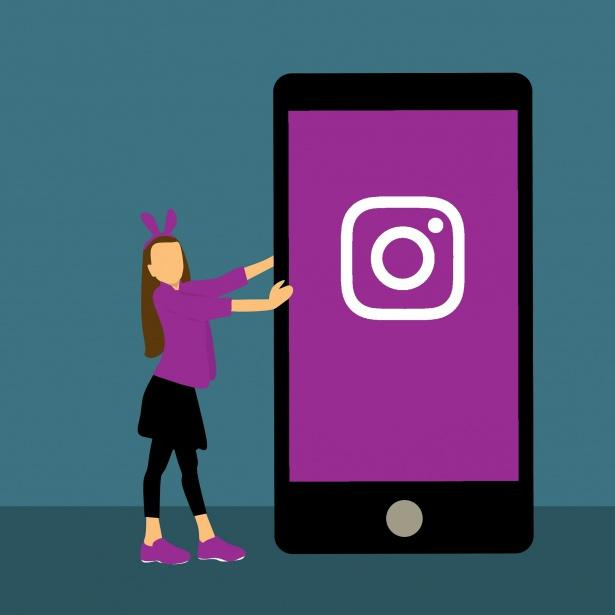Can GPT-01 reason?
Teens and AI, Instagram and teens, school phone bans, girls and computing, try making an AI podcast and much more....
What’s been happening
It’s a packed newsletter this week with items on everything from whether AI chatbots could be the antidote to conspiracy theories to Instagram’s teen account plans, a new report on teens and AI and – of course – the phones in schools debate.

But, briefly, before we dive in, a quick roundup of reaction to OpenAI’s new 01 model (previously codenamed Strawberry) and if claims that it can ‘reason’ stand up. Last week we highlighted Ethan Mollick’s experiment to test if 01 can solve a crossword (sort of, is the conclusion, with some help and a bonus hallucination) and he concludes that it is "amazing, still limited, and, perhaps most importantly, a signal of where things are heading."
Other examples of great reasoning are "thin on the ground' according to Simon Willison, who is also disgruntled by OpenAI's (deliberate) lack of transparency around how the model comes up with its answers:
"As someone who develops against LLMs, interpretability and transparency are everything to me – the idea that I can run a complex prompt and have key details of how that prompt was evaluated hidden from me feels like a big step backwards."
OpenAI has even threatened to revoke 01 access to those who have asked the model itself how it works, according to Chris Stokel-Walker’s TechScape, which is raising lots of questions. So, one to play around with and to keep an eye on but not a game changer – yet.
AI roundup
Teens and AI
Common Sense Media has published a report on teen use of AI that finds that a majority of teens use AI tools, especially chatbots and AI-supported search, and are using it “to stave off boredom” almost as often as they're using it for homework help, although two in five (40%) teens report having used generative AI to help with school assignments, and 46% of them report doing so without the teacher's permission. However, most adults in teens' lives are out of the loop with just 37% of parents whose teen reported using at least one generative AI platform thought their child had used generative AI. Almost half (49%) of parents say they have not talked about generative AI with their child. Read the report
Shape of the Future report
Rose Luckin’s Educate Ventures has produced a report aimed at multi academy trusts and school groups to support a safe, purposeful and intelligent approach to the use of AI by young people and the schools workforce. It includes a MAT AI Guidance Framework, offering a structured approach for MATs to integrate AI into education. Read the report
Meta to train AI on UK users’ data
Meta has confirmed that it’s restarting efforts to train its AI systems using public Facebook and Instagram posts from its UK userbase. Techcrunch notes that Meta is sticking with the same, previously controversial, ‘objection form approach’, meaning users will still have to formally apply to Meta to let them know that they don’t want their data used in this way – hardly an easy opt out. It also highlights that Meta’s decision to kickstart its plans in the UK is probably Brexit related: “While UK data protection law does remain based on the GDPR, the ICO itself is no longer part of the same regulatory enforcement club and often pulls its punches on enforcement.”
Emerging from the rabbit hole
Could AI chatbots persuade people to stop believing in conspiracy theories? Researchers believe so, finding that chatting about a conspiracy theory with a large language model (LLM) reduced people’s belief in it by about 20% – even among participants who claimed that their beliefs were important to their identity. MIT Tech Review describes the experiment and outcomes
Quick links
Instagram is rolling out teen accounts that are private by default and have enhanced parental controls. In his Platformer newsletter, Casey Newton lists these changes, which include new parental supervision tools that let parents manage their children’s Instagram settings and see who their teens are messaging (but not the contents of those messages), filtering offensive words, showing teens a new ‘daily limit’ prompt after they have used Instagram for 60 minutes and introducing ‘sleep mode’ which will automatically turn off Instagram notifications for teens between 10pm and 7am. Is it enough? It will certainly put pressure on TikTok, Snapchat and other teen-popular apps to introduce similar measures.
The National Centre for Computing Education is extending its Belong programme into key stage 2 to foster younger girls’ sense of belonging and confidence in computing from an early age, while also supporting teachers in challenging gender stereotypes. See also its research on gender balance in computing.
The Children’s Commissioner has opened her Schools Survey 2024 and it includes questions on school mobile phone policies.
On which hot topic… Ormiston Academies Trust’s decision to ban phones in all its 44 schools made the Guardian front page, but children’s digital experts Sonia Livingstone and Beeban Kidron have looked at the evidence and argue in an LSE blog post that “Talk of ‘bans’ closes down the deeper conversations society needs to have about the best interest of children in a digital age and lets the profit-hungry tech sector off the hook”.
Meanwhile, a former teacher says that Labour’s proposed ‘right to disconnect’ might have stopped her leaving the classroom (and would a regular lie-in have helped, too?)
Primary schools! It’s time to book your Be Internet Legends school assemblies. You can register now for the new AI assembly on Tuesday 15 October and the Be Internet Legends Day 2024 assembly on Tuesday 26 November.
Critical thinking in schools: can it be taught – and how?
Thanks to Chris Unitt’s Cultural Digital newsletter for these gems: how computer science students created an interactive exhibit for Bristol Museum, and thoughts on digital history
We’re reading, watching, listening…
Paris Marx argues for reclaiming sovereignty in the digital age, against the cyberlibetarianist approach that has taken hold since the 1990s
We haven’t watched this yet but this review of The Future with Bill Gates sounds interesting. Let us know what you think if you see it
Zadie Smith talks to Ezra Klein about populists, frauds, flip phones and digital media
Rethink: Is the internet getting worse? This episode of BBC Radio 4’s Rethink looks at the problem of internet platform decay and what can be done to make it better.
Give it a try
Google's NotebookLM
We haven’t tried this ourselves but it sounds intriguing and worth giving a go if you’d like to do something different with audio – turn any content into a podcast using Google's NotebookLM podcasting tech. NotebookLM was released last year but it sounds like it’s improving and there are a few interesting and different use cases.
Connected Learning is by Sarah Horrocks and Michelle Pauli




